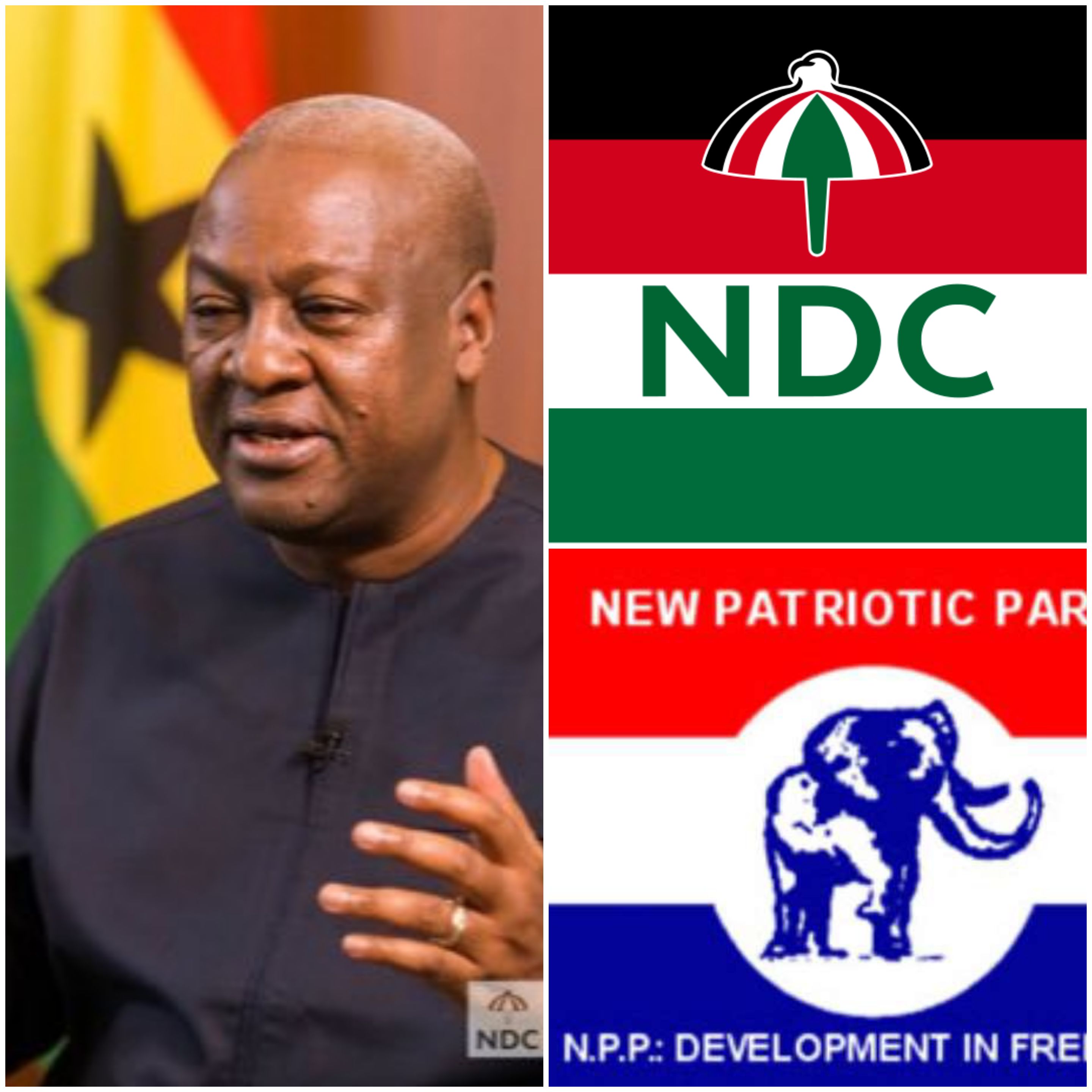NDC's Triumph Over Sabotage: The Mental and Cardiovascular Health Impacts of Political Criticism and Sabotage
NDC's Triumph Over Sabotage: The Mental and Cardiovascular Health Impacts of Political Criticism and Sabotage
By: Francis Appiah, Doctor of Naturopathic Medicine (N.D. Candidate), Medical Journalist, Integrative Health Expert, & Medical Laboratory Technologist
Email: kofiappiah803@gmail.com

Introduction
The 2024 Ghanaian general election brought to the forefront the destructive effects of intense political criticism and sabotage, which can have far-reaching consequences for the mental and physical health of citizens. This environment not only undermines the health and resilience of individuals and communities but also has severe consequences for citizens' mental and physical well-being. Notably, the National Democratic Congress (NDC) emerged victorious despite being ridiculed, criticized, and sabotaged by opposing parties, marking a triumphant journey from sabotage to salvation and victory. As a nation, we must acknowledge the devastating impact of political criticism and sabotage on our collective well-being. This article delves into the profound impact of political criticism and sabotage on mental and cardiovascular health, exploring the psychological and physiological mechanisms underlying this relationship.
The Psychological Toll of Sabotage and Critics
The emotional distress caused by sabotage and criticism can lead to anxiety, fear, anger, and frustration among individuals. Chronic stress can exacerbate mental health issues, including depression, post-traumatic stress disorder (PTSD), decreased self-esteem, and increased risk of suicidal ideation and behaviors (McEwen, 2007). Furthermore, research has shown that chronic stress can lead to changes in the brain's structure and function, contributing to the development of mental health disorders (Kabat-Zinn, 2003).
The Cardiovascular Risks of Chronic Stress
The link between chronic stress and cardiovascular disease is well-established. Chronic stress can increase the risk of cardiovascular disease by raising blood pressure, heart rate, and cardiovascular resistance (Kabat-Zinn, 2003). In Ghana, the prevalence of cardiovascular disease (CVD) is high, with a pooled prevalence of 10.34% (Ghana Health Service, 2020). Individuals who experience chronic stress due to political criticism and sabotage may be at increased risk of developing CVD.
Case Studies and Personal Experiences
Personal experiences highlight the devastating impact of political criticism and sabotage on mental health. As an Ashanti, I personally faced insults and criticism from friends due to my support for the National Democratic Congress (NDC). This led to emotional distress, anxiety, and decreased self-esteem. Even in public, I was confronted by an NPP supporter, asked to leave a public space for discussing my political affiliation.
A 45-year-old NDC supporter experienced anxiety, depression, and social isolation after facing criticism from NPP supporters for being an NDC member.
A 30-year-old NDC supporter reported decreased self-esteem and confidence due to rejection by family and friends who support the New Patriotic Party (NPP).
A 28-year-old woman, who wished to remain anonymous, shared her experience of being ostracized by her community for supporting the NDC. She reported feeling isolated, anxious, and depressed.
A 35-year-old NPP supporter, who wished to remain anonymous, shared her experience of facing harassment and intimidation from NDC supporters. She reported feeling anxious and fearful.
Conclusion
This 2024 Ghanaian general election served as a prime example of how political criticism and sabotage can have devastating effects on mental and cardiovascular health. However, the National Democratic Congress's (NDC) ultimate victory also demonstrates that even in the face of intense opposition, salvation and triumph are possible. To reduce mental health problems and cardiovascular disease triggered by political sabotage and criticism, it's essential to avoid sabotage and criticism, allowing individuals to make their preferred political choices and respecting each other's political affiliations. By promoting a culture of respect and tolerance, we can ultimately pave the way for a more peaceful and harmonious political landscape. Congratulations Mr. President H.E. John Dramani Mahama and the NDC
References
1. Ghana Health Service. (2020). Ghana Non-Communicable Diseases Policy.
2. Kabat-Zinn, J. (2003). Mindfulness-based interventions in context: Past, present, and future. Clinical Psychology: Science and Practice, 10(2), 144-156.
3. McEwen, B. S. (2007). Physiology and neurobiology of stress and adaptation: Central role of the brain. Physiological Reviews, 87(3), 733-745.7
About the Author
Francis Appiah is a Doctor of Naturopathic Medicine candidate with expertise in medical laboratory technology, medical journalism, complementary/integrative medicine, and CAM healthcare management. He leverages this diverse background to deliver holistic care. With over eight years of experience in Ghana's healthcare sector, Francis excels in clinical diagnosis, integrative medicine, patient-centered care, analytical and diagnostic skills, problem-solving, and healthcare management.
His mission is to establish Franapp Holistic Medical Centre, providing comprehensive conventional and natural medicine services to all Ghanaians and bridging the gap between traditional and holistic healthcare for optimal wellness.
Disclaimer
The views expressed in "NDC's Triumph Over Sabotage: The Mental and Cardiovascular Health Impacts of Political Criticism and Sabotage" are those of the author, Francis Appiah, and may be influenced by his personal experiences and political affiliations, including his support for the National Democratic Congress (NDC).
The information presented in this article is for general educational purposes only and should not be considered as professional medical or psychological advice. Readers are advised to consult qualified healthcare professionals for personalized guidance on mental and cardiovascular health.
While the article aims to explore the potential psychological and physiological impacts of political criticism and sabotage, its content may be subjective and reflective of the author's individual perspective.
Copyright 2024 Francis Appiah. All rights reserved.
Comments
Post a Comment